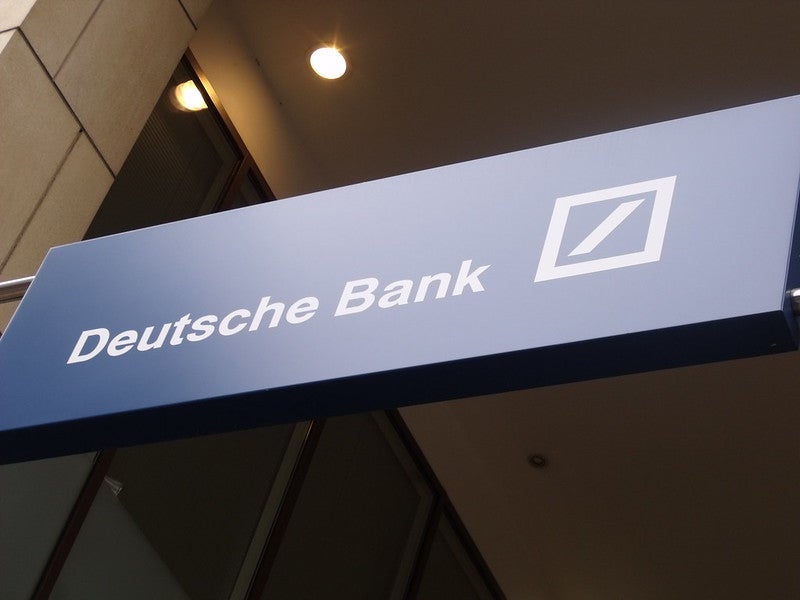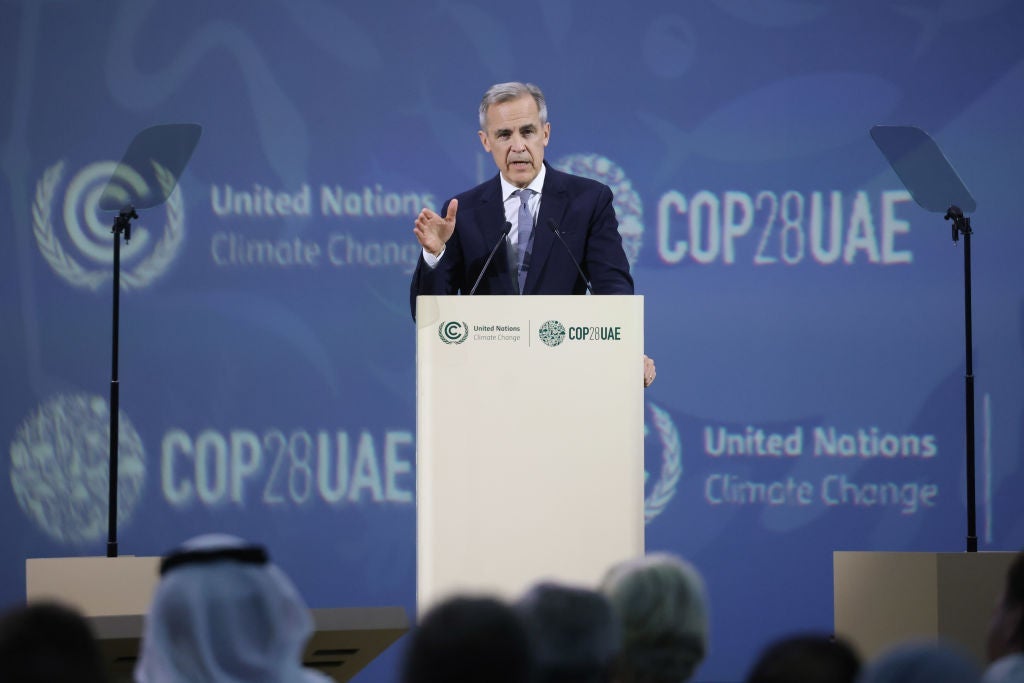Mexico’s growth story has many parallels with Asia which is why wealth managers are increasingly interested in the US’s third largest trade partner. The building block is Mexico’s economy. Its GDP is predicted to grow by 3.6% in 2013 and 3.8% in 2014, Fitch Ratings says.
"Manufacturing exports have been the engine of Mexico’s economic growth," says Alejandro Garcia, a senior director for Latin American financial institutions at Fitch. "The rise of manufacturing has led to the creation of significant new wealth. All the institutions targeting Mexican private clients are seeing double-digit growth in assets under management."
All this has meant Asian-like high net worth (HNW) growth rates. Global wealth consultancy WealthInsight says the number of Mexican HNW individuals (HNWIs) rose by 34% between 2007 and 2012 to 145,000, while the number of UHNWIs rose by 38% to 2,550 during the same period. Mexican HNWI wealth rose by 33% to US$775bn between 2007 and 2012, while Mexican UHNWI wealth rose by 64% to US$390bn in the same period, WealthInsight added.
"We expect Mexico’s HNWI population to increase by 43% in the next five years," says WealthInsight analyst Andrew Amoils. "This will be fuelled by strong economic growth and the emergence of a large number of HNWIs from the financial services, transport and basic materials sectors."
This growth is not without its issues. HSBC’s $28m fine for anti-money laundering breaches and the renewed challenges of dealing with FATCA are forcing banks to keep compliance front-of-mind.
Bringing it back
One of the reasons for this swell in HNW wealth is repatriation.
"In the past, Mexican HNWIs tended to keep their wealth abroad," says Garcia. "But, with the improvement in the economy and growing political stability, they have increasingly repatriated their assets."
How well do you really know your competitors?
Access the most comprehensive Company Profiles on the market, powered by GlobalData. Save hours of research. Gain competitive edge.

Thank you!
Your download email will arrive shortly
Not ready to buy yet? Download a free sample
We are confident about the unique quality of our Company Profiles. However, we want you to make the most beneficial decision for your business, so we offer a free sample that you can download by submitting the below form
By GlobalDataJoaquin Valle, a principal at Boston Consulting Group (BCG), estimates the onshore market is growing at 12% a year, while offshore is growing at 7%.
"Currently, the trend is for 70-80% of a Mexican private banking client’s assets to be invested domestically and the remainder to be invested internationally for diversification," says Marlon Young, CEO at HSBC Private Bank for the Americas. "Previously, when the Mexican economy was weaker, we saw 50-60% of our clients’ wealth being invested offshore."
"The domestic Mexican markets have become more transparent and more sophisticated, have better liquidity, and are better regulated than before," says Jorge Rodriguez, CEO of Credit Suisse Private Banking Mexico.
BCG says the Mexican offshore market was worth $275bn in 2012, of which $6bn was accounted for by clients with assets under $1m, and $269bn by clients with assets over $1m.
"JP Morgan, Citi, Merrill Lynch, UBS and Credit Suisse had nearly 40% of total Mexican funds invested offshore in 2012," says Muñiz.
BCG estimates that Mexican offshore assets held by JP Morgan totalled $31bn in 2012, with both Citi and UBS holding $23bn, Merrill Lynch $18bn, Credit Suisse $12bn, Santander $8bn and HSBC $4bn.
"Most of the money that is being repatriated is invested directly into new or existing businesses," says BCG partner Joel Muñiz.
One of the services HSBC Private Bank Mexico offers is to introduce clients to businesses needing investments. "We can help our Mexican private clients with their investment and acquisition needs in industries such as telecoms, manufacturing, and real estate by leveraging our commercial and investment banks," says Young.
Muñiz says very few Mexican private banks offer venture capital funds or private equity funds as part of their onshore portfolios so they have to look offshore. "Most onshore banks are trying to figure out how to enter the private equity and venture capital markets."
Valle says 95% of the onshore Mexican private banking market comprises assets under management, with only 5% being held in liabilities such as mortgages. "Elsewhere, the mix is 30-40% liabilities and 60-70% assets," he says. "Mexican private banks are trying to develop credit products such as business lines of credit and mortgages. Currently, it’s retail or commercial banks that handle Mexican private clients’ borrowing."
Onshore segmentation
BCG’s Valle says there are two models in the Mexican wealth management market. Affluent consumers with assets between $200,000 and $1 million who are served through bank branches. And the private client segment, where advisers visit customers in their homes and offices.
HSBC will accept Mexican clients, who only need domestic private banking services, with a minimum of $1m in investable assets. Those who want international private banking services need a minimum of $3m in investable assets at the bank.
BCG estimates that in 2012 the onshore market was worth US$538bn, of which clients with assets under $1m accounted for $434bn and clients with assets above $1m accounted for $104bn. "Mexico’s five largest banks, Banamex, BBVA Bancomer, Banorte, Santander and Scotiabank, have 70% of the total onshore wealth market, including clients below $1m," Muñiz says.
"There are also a number of independent players in the private banking custodian market, the largest of which are GBM and Actinver," says Valle. "In addition, there are independent investment advisers, mostly set up by former private bankers. These firms have an open architecture, and mostly use Scotiabank or Santander as custodians for the funds they manage."
Asociación Mexicana de Asesores Independientes de Inversiones, the independent investment adviser self-regulatory body, says total assets managed by its members rose from MXN74.7bn ($6.05bn) in 2009 to MXN79.4bn in 2011.
Foreign players largely stick to offshore
Credit Suisse launched its onshore private banking business in March 2009 with a particular focus on ultra-high-net-worth individuals and families. "We offer local and international securities, a large variety of mutual funds, alternative investments, and structured notes. We also provide both advisory and discretionary accounts," says Rodriguez.
"Credit Suisse has invested heavily in its onshore Mexican private banking operation," says Roman Edelmann, a partner at US-based family office consultancy The Strategy Group. "The front-runners among the global private banks in the onshore Mexican market are Credit Suisse and UBS. JP Morgan has a much smaller Mexican onshore platform."
"Both Credit Suisse and UBS have open architecture platforms in Mexico," says Edelmann. "Primarily, the Mexican banks sell their own products to their Mexican private banking clients. They don’t have a philosophy of providing best-in-category products to their clients."
"Around 60-70% of HSBC’s private banking clients from Mexico are business owners and entrepreneurs," says Young. "Many of them are also clients of our commercial bank."
HSBC’s Mexican private banking clients are typically in their 40s to their 60s and very active in creating wealth, either in their own business or because they have sold their company and are investing the proceeds in the wealth markets, adds Young . "A large number of referrals to our private bank come from our Mexican retail and commercial businesses."
ETF demand on the rise
Mexican regulations bar banks from offering foreign-currency investment products to their onshore private banking clients. "We offer Mexican government and corporate bonds, Mexican government and corporate short-term repos, Mexican equities, commodities, and REITs" says Young. "But all these investments have to be Mexican Peso-denominated. We also offer global equities and ETFs to our Mexican onshore private banking clients, but only if they are listed on the international section of the Mexican Stock Exchange and denominated in Pesos."
"The attraction of purchasing foreign equities on the Mexican Stock Exchange is that Mexico has no capital gains tax," says Ricardo Haneine Haua, an A.T. Kearney partner. "If Mexicans buy stocks abroad, they have to report any capital gains on their Mexican tax return. However, the Mexican Stock Exchange isn’t as sophisticated as the US stock markets in terms of derivatives and futures. If investors want derivatives or futures, they need to go to foreign exchanges."
"There is an increasing demand by Mexican private banking clients for ETFs, and a corresponding decline in demand for mutual funds products," says Elisabetta Bartoloni, a principal, global financial services, at executive search firm Heidrick & Struggles.
"If Mexican clients want broader access to international equities, alternative investments, and emerging market investment products, they’ll be better served in one of our international booking centres in the US and Europe," says Young.
Keeping clear of FATCA
In November 2012, the US and Mexican governments signed a bilateral agreement under the 2010 Foreign Account Tax Compliance Act (FATCA). The agreement, which comes into effect in 2014, calls for the US to inform the Mexican authorities about US bank accounts held by Mexicans and interest and dividends paid to them in the US. In return, Mexico will inform the US about accounts held by US taxpayers in Mexico.
"FATCA will influence the direction of Mexican investors’ US asset allocation strategy," says Bartoloni. "The industry expects an increase in alternative investments over traditional investments, due to FATCA."
"FATCA will have a big effect on US banks, as Mexican private clients represent a significant business for them," says Edelmann. "Around 75-80% of the assets held by Mexican private banking clients offshore are held in the US. The rest is spread between other offshore booking centres such as Switzerland or Luxembourg."
In July 2012, Mexico’s Comisión Nacional Bancaria y de Valores (national banking and securities commission) fined HSBC MXN 379m for non-compliance with AML systems and controls during 2002-2008, following a US Senate investigation into drugs and terrorist financing.
According to a July 2012 US Senate committee report, HSBC Mexican affiliates had exposed themselves and HSBC US to Mexican drug cartels’ money laundering, due to AML deficiencies while serving high-risk clients.
HSBC CEO Stuart Gulliver said in December 2012 that the bank had taken "concrete steps to put right what went wrong." These measures including increasing HSBC Bank USA’s AML spending nine times between 2009 and 2011, and increasing its AML staffing tenfold between 2010 and 2012.
"The Mexican government has invested heavily in improving AML controls over the last few years," says Haneine-Haua. "Mexican private banks have no incentive to allow money laundering. HSBC’s fine was a wake-up call to Mexican banks to strengthen their AML compliance processes," says Edelmann.
Mexico’s Aztec Tiger may roar but it will have to remain on a short leash.
| 2012 | Growth rate 2007-2012 (%) | Growth rate 2012-2017 (%) | |
|---|---|---|---|
| Number of HNWIs | 145.000 | 34% | 43% |
| Number of UHNWIs | 2.550 | 38% | 48% |
| Number of Billionaires | 16 | 14% | 25% |
| Wealth of HNWIs (US$bn) | 775 | 33% | 45% |
| Wealth of UHNWIs (US$bn) | 390 | 64% | 44% |
| Wealth of Billionaires (US$bn) | 231 | 102% | 26% |
| 2012 | Growth rate 2007-2012 (%) | Growth rate 2012-2017 (%) | |
|---|---|---|---|
| Number of HNWIs | 103.000 | 35% | 42% |
| Number of UHNWIs | 1.850 | 31% | 47% |
| Number of Billionaires | 6 | 0% | 17% |
| AuM (USD) Millions | |
| Banorte | 52.800 |
| BBVA Bancomer | 40.000 |
| Banamex | 21.740 |
| Scotiabank Inverlat | 5.704 |
| Santander Mexico | 4.626 |
| HSBC Mexico | 571 |
| Interacciones | 541 |
| Inbursa | NA |
| Deutsche Bank Mexico | NA |
| Afirme | NA |







